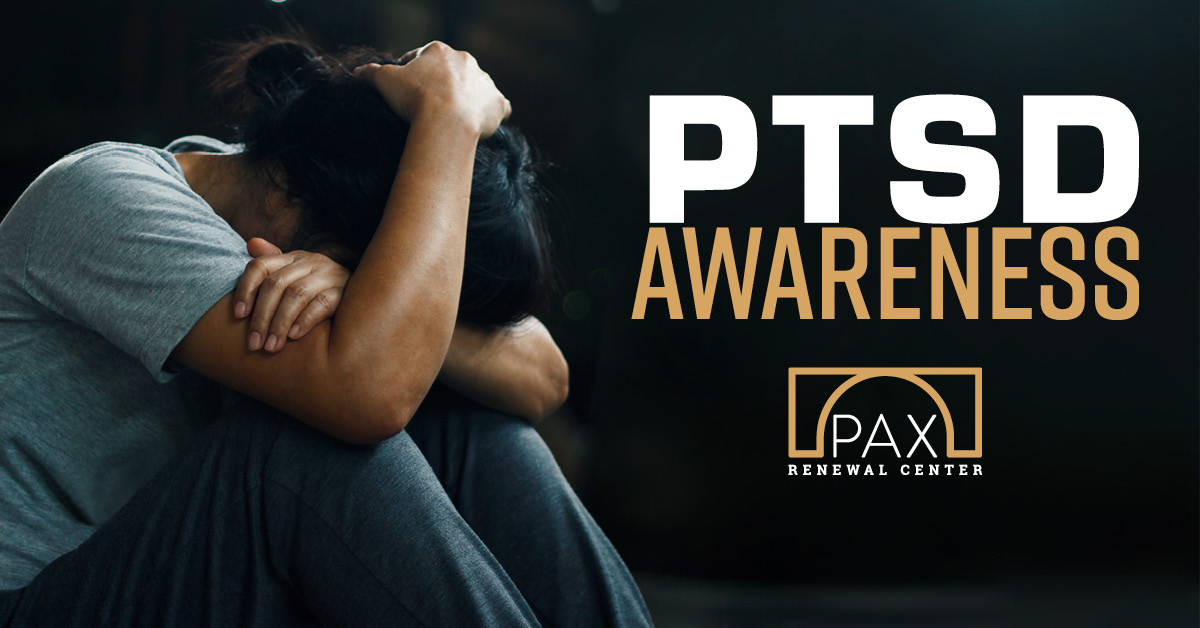In reverence to PTSD awareness month, Pax Renewal Center would like to take this opportunity to talk about what PTSD means. Let’s start by defining what PTSD is and how it can affect people.
What is PTSD?
PTSD (or Post Traumatic Stress Disorder) is defined by the U.S. Department of Veterans Affairs as “a mental health problem that some people develop after experiencing or witnessing a life-threatening event, like combat, a natural disaster, a car accident, or sexual assault”. These kinds of events can trigger unsettling emotional and physical reactions including nightmares/trouble sleeping, uneasiness, avoidance issues, anxiety, and depression. These feelings are not uncommon after events of trauma but typically fade in a few week’s time. If reactions persist, however, it could be signs of PTSD.
How common is PTSD?
Post-Traumatic Stress Disorder is most commonly associated with combat veterans dealing with the horrors of war, but it is more prevalent than most people think. It can affect people from all ethnicities and age groups. In fact, it is estimated that 1 in 11 people will be diagnosed with PTSD in their lifetime. Also, women are said to be twice as likely as men to experience it. Dealing with these feelings alone can be detrimental to mental health and strain relationships with family and friends. It is important to seek professional treatment from a therapist, counselor, or mental health care provider that can assist you in your recovery. Have you ever experienced this kind of event? If yes, you could be suffering from PTSD.
Do you suffer from any of the following?
- Had nightmares about event(s) or thought about the event(s) when you did not want to?
- Tried hard not to think about event(s)or went out of your way to avoid situations that reminded you of event(s)?
- Been constantly on guard, watchful, or easily startled?
- Felt numb or detached from people, activities, or your surroundings?
- Felt guilty or unable to stop blaming yourself or others for event(s) or any problems event(s) may have caused?
If you have experienced trauma that has had a lasting negative effect and suffer from any of the symptoms above, you could be suffering from PTSD. Seriously consider the questions above and ask yourself if you’ve experienced any in the past month. If the answer is “yes” to 3 or more, you are considered sensitive to probable PTSD and should undergo further assessment. The good news is you don’t have to go through this alone. Pax Renewal Center is here for you. Give us a call today.





